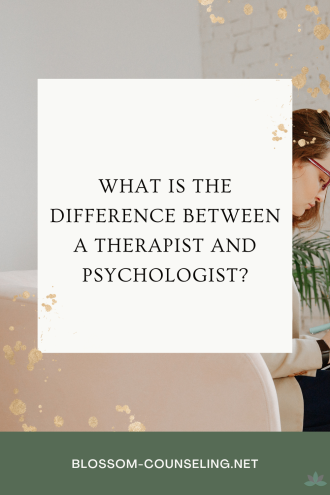
Navigating the world of mental health can sometimes feel like trying to solve a Rubik’s Cube – complex and colorful. One common puzzle? Understanding the difference between a therapist and a psychologist. Both play pivotal roles in mental health, but they’re not interchangeable. Let’s break it down in a way that doesn’t require a Ph.D. to understand.
The Education Expressway
Therapists: This is a broad term, encompassing many types of professionals in the mental health field. It’s like calling someone an artist – it doesn’t tell you if they’re a sculptor, a painter, or a digital wizard. Therapists can be social workers (LCSW), licensed professional counselors (LPC), marriage and family therapists (LMFT), and more. What’s common among them? They typically hold a master’s degree in their specific field of counseling.
Psychologists: Think of psychologists as the deep-divers of the mental health world. They usually hold a doctoral degree (Ph.D. or PsyD). This level of education means they’ve spent several years studying psychological theories, research methods, and extensive clinical training. Psychologists are like the architects of the mind – they understand the theory behind the structure and function of human behavior.
The Toolbox: Techniques and Treatments
Therapists: Their approach is often more holistic and client-centered. They use a variety of methods tailored to individual needs – from talk therapy to behavioral interventions. Their focus is often on helping you navigate life’s challenges, develop coping strategies, and enhance your overall well-being.
Psychologists: With their extensive training, psychologists can perform psychological testing and assessments – think of these as mental health x-rays, revealing the underlying patterns of thoughts and behaviors. They’re also well-versed in providing therapy, especially for more complex mental health conditions.
Who’s the Right Fit?
Choosing between a therapist and a psychologist is like picking between a GPS and a roadmap. Both will guide you to your destination, but the journey might look different.
When to choose a therapist: If you’re dealing with life stresses, relationship issues, or looking to improve your coping strategies, a therapist can be a great fit. They provide a supportive space to explore your feelings and develop practical skills.
When to opt for a psychologist: If you suspect you might have a more complex mental health condition, are in need of psychological testing, or are interested in a more theory-based approach to treatment, a psychologist might be the way to go.
The Journey Together
Regardless of whether you choose a therapist or a psychologist, the heart of the matter remains the same – it’s about finding someone you can trust, feel comfortable with, and openly share your journey. It’s about that human connection, the one that says, “I hear you, I see you, and I’m with you on this path.”
At our practice, we cherish authenticity and relatability. We believe in creating a space where you can be your true self, whether you’re engaging with a therapist or a psychologist. We’re here to help you navigate the maze of mental health with ease, understanding, and a bit of fun. Remember, taking the first step towards mental wellness is a sign of strength, not weakness. And whether you’re taking that step with a therapist or a psychologist, we’re here to walk alongside you. Let’s embark on this journey together, discovering the best version of you along the way!




